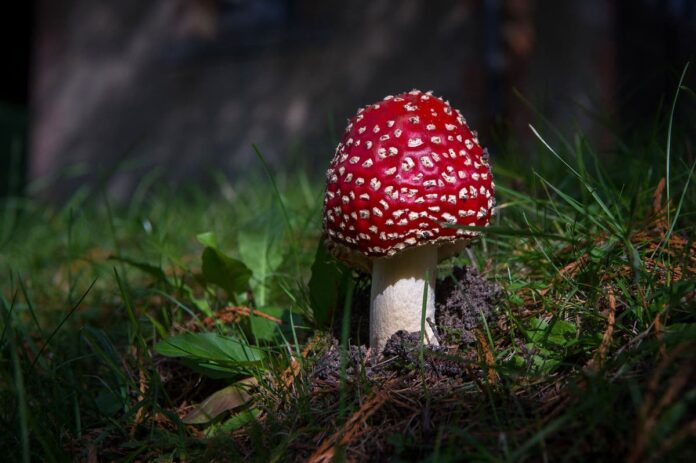A small dose of the magic mushroom-derived drug psilocybin along with psychotherapy can significantly reduce symptoms of severe depression in patients, according to a new study.The research, published in the New England Journal of Medicine, assessed data from 233 participants with treatment-resistant depression in a clinical trial spanning 22 international sites across 10 countries in Europe and North America, including the Institute of Psychiatry, Psychology and Neuroscience (IoPPN) at King’s College, London.’Whilst many patients with mental health problems get better with available treatments, a subgroup of patients do not even though they try many different forms of treatment. This is sometimes called ‘treatment resistance,” explained James Rucker, one of the co-authors of the study.Nearly 100 million people in the world suffer from this form of severe depression – one in which patients have not responded to at least two antidepressant treatments for their major depressive disorder.Since treatment options for this group of people are limited, scientists say new paradigms for treating these patients and clinical research into the severe condition are needed. While a growing body of research points to the positive effects of psilocybin treatment on mental health, researchers say its effects need to be tested in larger clinical trials.Researchers looked at the change in the severity of depression in trial participants with treatment-resistant depression over the course of 12 weeks after they were administered a single dose of COMP360 psilocybin along with psychological support. The patients were allocated at random to either a single 25mg, 10mg, or 1mg dose of COMP360 psilocybin, along with psychological support.Participants receiving the 1mg dose acted as a control group. The participants were assessed on the severity of their depressive symptoms a day before the COMP360 psilocybin was administered, along with follow-up assessments on day two and at weeks one, three, six, nine and 12.Participants reported a greater reduction in depression three weeks after taking a single 25mg dose of COMP360 psilocybin, compared to those who took the lowest 1mg dose.A tiny 25mg dose of the magic mushroom-derived drug psilocybin along with psychotherapy can significantly reduce symptoms of severe depression’This study, which is by far the largest clinical trial on the use of psilocybin for treatment-resistant depression to date, demonstrated that a single 25mg dose of psilocybin improved participants’ symptoms of depression in comparison to a 1mg dose (control). These findings are a positive step in the right direction,’ Dr Rucker said.The effects lasted between six and eight hours. A therapist was also in the room with the participants during this time to provide psychological support. ‘In this phase 2 trial involving participants with treatment-resistant depression, psilocybin at a single dose of 25mg, but not 10mg, reduced depression scores significantly more than a 1mg dose over a period of 3 weeks but was associated with adverse effects,’ scientists wrote in the study.There were also some adverse effects reported by participants, such as headaches, nausea, dizziness, fatigue and thoughts around suicide across all dose groups.Findings point to the potential recognition of COMP360 psilocybin as a new treatment option for treatment-resistant depressionAbout 84 per cent of patients in the 25mg dose group reported headache, nausea, dizziness and fatigue, the study noted.This fraction was 75 per cent in the 10mg dose group and 72 per cent in the 1mg dose group, scientists added.’Suicidal ideation or behavior or self-injury occurred in all dose groups,’ scientists noted, adding that these symptoms are common in treatment-resistant depression studies.However, they say the findings point to the potential recognition of COMP360 psilocybin as a new treatment option for treatment-resistant depression.’We look forward to starting our phase 3 program later this year, moving us closer to providing COMP360 psilocybin with psychological support for patients who desperately need it,’ said Guy Goodwin, another study co-author.’Larger and longer trials, including comparison with existing treatments, are required to determine the efficacy and safety of psilocybin for this disorder,’ researchers added.


